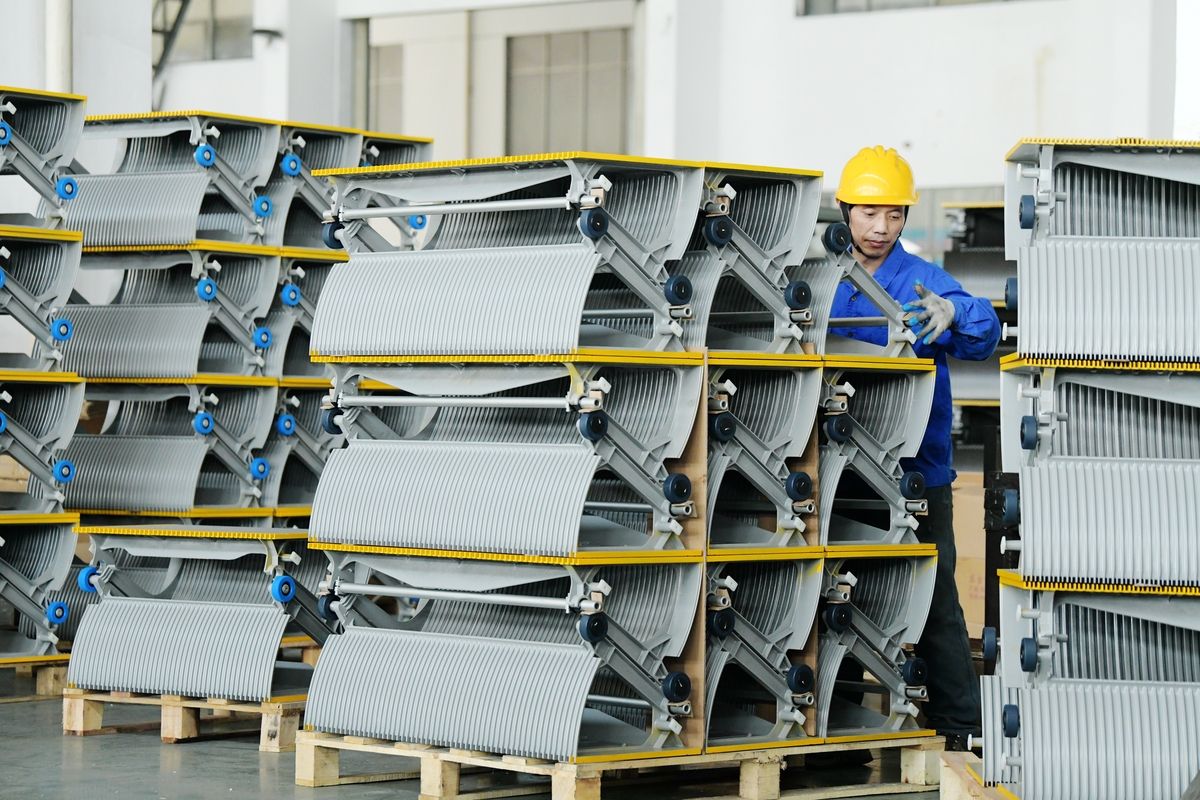 An employee works on the production line of escalator components in Nantong, Jiangsu province. GU HUAXIA/FOR CHINA DAILY
An employee works on the production line of escalator components in Nantong, Jiangsu province. GU HUAXIA/FOR CHINA DAILY
Specialists: Sci-tech efforts will become resilient, motivating companies to excel
China's efforts to strengthen industry and supply chains will also boost the resilience of its scientific and technological innovation, and motivate companies to overcome technological bottlenecks, experts said.
Qiao Biao, deputy head of the China Center for Information Industry Development, a Beijing-based think tank, said a more resilient and flexible industry chain is an important foundation for the growth of China's economy, as uncertainties continue amid the COVID-19 pandemic.
"China's efforts to ensure the stable operation of industry and supply chains will contribute to the whole world, given the nation's position in the global industrial economy," Qiao said.
His comments followed Friday's meeting when China set out key economic policy directions for the second half of this year, highlighting that the resilience of scientific and technological innovation, as well as industry and supply chains, must be further harnessed, and fundamental research should be strengthened.
A special action plan will be released on industry and supply chains, with measures to resolve bottleneck problems quickly, according to a statement released after a meeting of the Political Bureau of the Communist Party of China Central Committee.
Jiang Xiaojuan, head of the School of Public Policy and Management at Tsinghua University, said improving fundamental industrial capabilities and removing technological bottlenecks are crucial to achieve high-quality growth.
Zhang Yuxian, director of the Department of Economic Forecasting at the State Information Center, said more efforts are needed to promote the integration of industry and innovation chains, spur the development of the digital economy and develop smart and digital industry chains.
Greater focus is also needed to support the development of key fields, including core components, high-end chips and basic software, Zhang said.
China has been attaching high importance to the stability of industry and supply chains, since the outbreak of the COVID-19 pandemic. The 2021 Government Work Report said the nation will implement projects for upgrading industrial infrastructure foundation and give full play to large enterprises' capacity to provide leadership and support, and to the collaborative and supporting role of micro, small and medium-sized enterprises, or MSMEs.
The plans came after the nation's industrial output, an important economic indicator, reached 31.31 trillion yuan ($4.84 trillion) last year, making it the world's largest manufacturing country for 11 consecutive years. But challenges exist as China relies heavily on imports for certain key technologies like high-end semiconductor products.
Yan Guihai, founder and CEO of Chinese chip startup Yusur, said, "We are deeply inspired by the country's call to support more small and medium-sized enterprises in various fields, especially those focused on solving bottleneck problems."
Although the company is not big in terms of volume, it has been pouring a lot of resources into the development of independent data processing unit, or DPU, chips that many foreign chip giants such as Intel, Broadcom and Marvell joined to develop, Yan said.
"The country has the world's strongest internet industry with the largest group of netizens and related infrastructure. This has led to a huge demand for computing power and created huge development opportunities for DPU products," he said.
"With the country stepping up efforts to support SMEs, the company will accelerate research and development of basic technologies related to data processing, storage, and computing, so as to promote wider applications of homegrown chips."






